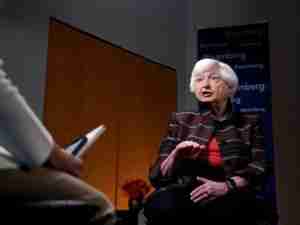Bank of Israel Holds Key Interest Rate as Exports, Growth Slow
By: Jonathan Ferziger | Jul 25 2016 at 09:01 AM | International Trade
The Bank of Israel left its benchmark interest rate near zero, as growth slowed and as exporters braced for the impact of the U.K.’s vote to leave the European Union—Israel’s largest trading partner.
The decision to hold the rate at 0.1 percent was forecast by all 17 economists in a Bloomberg survey. The central bank said last month it was closely monitoring developments surrounding the Brexit vote, amid fears it could crimp demand for exports that declined 12.9 percent in the first quarter, excluding diamonds and startups. The bank last changed the rate in February 2015.
Israel’s economy grew 1.7 percent in the first quarter, down from 3.5 percent in the previous period, led by the drop in exports that account for about a third of output. While prices have fallen for 22 months on an annual basis, soaring housing costs have made it difficult for the central bank to consider a rate cut. The bank’s research department said it expects inflation to enter the target range of 1 percent to 3 percent within about a year.
The shekel has also surged, rising for an eighth day on Friday against a currency basket including the U.S. dollar and the euro, its longest streak since June 2014.
“This will likely drive the Bank of Israel to renew its intervention in the FX market,” David Reznik, head of fixed-income research at the capital markets division of Bank Leumi Le-Israel Ltd., Israel’s second-largest lender, said in an e-mailed note ahead of the central bank’s announcement.








